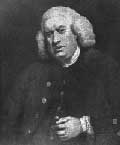What sorts of knowledges are produced by cultural studies scholarship and how do we as teachers facilitate the development and exhibition of these knowledges? The first part of this question is impossible to answer exhaustively, but before we confront it we need to think about the question's second part: what sorts of projects will challenge students to think about cultural interpretation in new and possibly unforeseen ways? How can they have the experience of creating knowledge through a type of scholarship we would associate with cultural studies?
As a medium for the exhibition of knowledge about the construction of culture, the "Dictionary" challenges the conventional mechanisms for representing cultural history. The student no longer searches for definitive and central cultural events. The hypertext's emphasis is on the links between events, texts, and actors rather than on these objects of study themselves. In this manner culture is represented as a complex network, but a network without a center or any sort of symmetry. The hypertext presents a culture that can be entered at multiple points and described and investigated through diverse paths of inquiry.
Only when we offer students new forms for representing and actually experiencing cultural interpretation will we be able to more easily discuss in the classroom the various types of knowledge cultural studies presents.
Related terms:
 Back to the Launch Page
Back to the Launch Page
 Back to the list of keywords
Back to the list of keywords